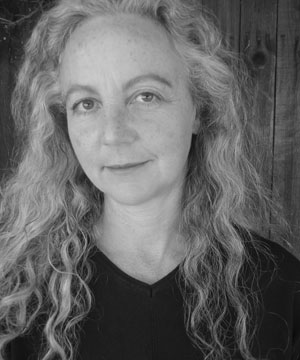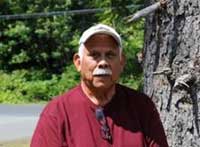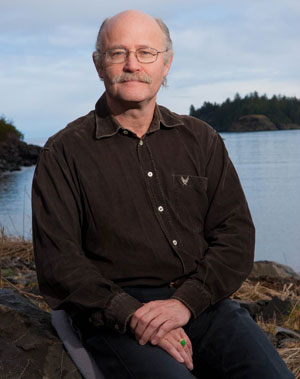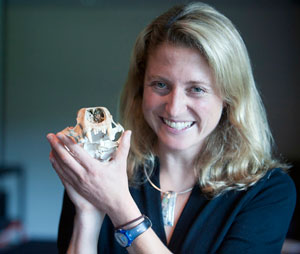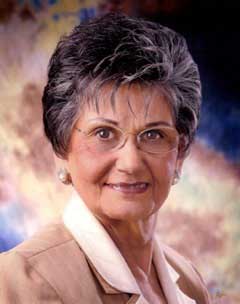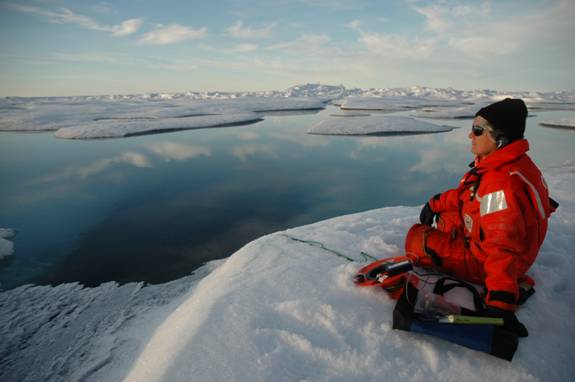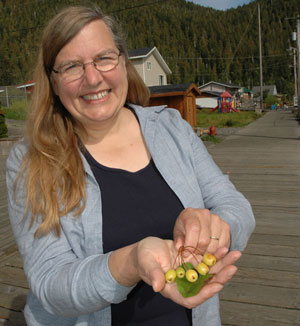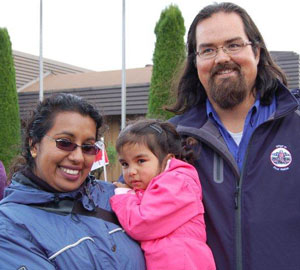Plenery Speakers
| Lecture Schedule | ||||||||||||||||||||||||
|---|---|---|---|---|---|---|---|---|---|---|---|---|---|---|---|---|---|---|---|---|---|---|---|---|
|
|
| 2nd Dr. Ransom A. Myers Memorial Lecture |
|---|
|
Alexandra Morton Alexandra Morton moved to a remote archipelago in British Columbia in 1984 to begin a year-round study of killer whales. Ten years later her study area began to flash classic warning signals that the salmon feedlot industry was over-loading the ecosystem: toxic algae blooms, displacement of the whales, loss of salmon, massive parasite outbreaks and decay of the local community. As the only biologist on scene Morton began doing the science government required. Her remote home is now the Salmon Coast Field Station and Simon Fraser University gave her an honourary doctorate for her work on impact of salmon feedlot-origin sea lice on wild salmon. Her work continues. |
| Plenary Speakers |
|---|
|
Paul Pearson Paul was born and raised on Haida Gwaii and has spent most of his adult life working and raising his family on these islands. Paul has a long history of involvement in Haida Gwaii's resource industry (logging and fishing) and he will be the first one to admit to the damage our generation has done to the land and sea that is part of his nation's traditional territory. Paul has been a strong advocate for protection of the land and waters in Gwaii Haanas as far back as the protests on Lyell Island in the 1980s. Paul has never been one to avoid getting involved. He served on the Skidegate Band Council as Chief Councillor for 10 years. He also spent 12 years on the Archipelago Management Board looking after Gwaii Haanas. He tried to retire but no sooner had he stepped down from the Archipelago Management Board than he was recruited to provide advice and guidance to the proposed Gwaii Haanas National Marine Conservation Area project team. Paul has been a member of the project team since 2006. In the end it's about the experience. "Everyone who experiences Haida Gwaii will understand why we are trying to protect Gwaii Haanas. Whether they come here or learn about this special place other ways."
Norm Sloan Since 1998 I have worked for Parks Canada Agency as the marine ecologist for Gwaii Haanas National Park Reserve and Haida Heritage Site, Haida Gwaii (Queen Charlotte Islands), British Columbia. After decades of preparation, Gwaii Haanas National Marine Conservation Area Reserve surrounding Gwaii Haanas' lands was established in June 2010. This created a conservation continuum spanning alpine to deep-sea ecosystems. The extent of the combined area, ~5,000 km2 (lands plus ~3,400 km2 of proposed sea space), the breadth and completeness of the ecosystem coverage, and the cooperative management partnership with indigenous people (the Haida) collectively render Gwaii Haanas globally unique for a temperate coastal rainforest area. I was born and raised in Vancouver, B.C., and completed my Ph.D. in 1977 at the University of London (UK). My career has unfolded in applied marine biology for government in conservation and fisheries and for industry in forestry, mining and petroleum sectors with work experiences in 15 nations.
Anne Salomon Anne Salomon seeks to advance our understanding of how human disturbances alter the productivity, biodiversity and resilience of coastal marine ecosystems to inform ecosystem approaches to marine conservation. Broadly, Anne is interested in the cascading effects of predator depletion on marine food webs, marine reserve design and evaluation, climate change impacts on coastal ocean ecosystems, and the factors driving alternative state dynamics and the resilience of social-ecological systems. Ultimately, Anne strives to engage coastal communities and government agencies in collaborative research and encourage constructive dialogue among stakeholders to navigate the tradeoffs between coastal conservation and resource use.
Idelisa Bonnelly Idelisa Bonnelly de Calventi is ProfessorEemeritus from the Universidad Autónoma de Santo Domingo where she worked for 25 years dedicated to promote Dominican marine sciences and sustainable use of marine resources with especial emphasis on the conservation of marine mammals and the establishment and development of the Marine Mammal Humpback Sanctuary. In 1988 she was included in the PNUMA honor list Global 500. After retirement from academic life, she continued her work through the Fundacion Dominicana de Estudios Marinos (FUNDEMAR), organizing a marine science based-conservation team that has become a basic Dominican research institution. Professor Bonnelly coordinated the Friends of the Dolphins Project (with national and international researchers and collaborators) in the Parque Nacional del Este promoting the development of sustainable tourism as an alternative to the dolphin captivity industry. In 2008, this project won a Ford Motor Company Award in the category of Conservation and Education. She was awarded the Medal of Merit for Women in Science from the Dominican government, the UNESCO Madame Curie Medal 2009, the Ecology Award from Corripio Foundatio,n and in 2010 recieved a Distinguished Service award from the Society for Conservation Biology..
Sue E. Moore, PhD Sue Moore is a biological oceanographer, with 30 years research experience focused on the ecology, bioacoustics and natural history of whales and dolphins. She holds a BA in Biology from the University of California, San Diego, a MS in Biology from San Diego State University, and a PhD in Biological Oceanography from Scripps Institution of Oceanography. Sue served as Director (2002-2004), and as Cetacean Program Leader (1998-2002), at the National Marine Mammal Laboratory (NMML), NOAA Alaska Fisheries Science Center and is an affiliate professor at the University of Washington (UW) in the Department of Biology and the School of Aquatic and Fisheries Sciences. From 2004-08, she was a visiting scientist at the Applied Physics Laboratory (APL) at UW to develop and support NOAA-relevant bio-acoustic and arctic-related research programs. In 2008, Sue returned to NOAA joining the Marine Ecosystems (ST7) Division of the Office of Science and Technology. Currently, Sue serves as the Chair of the Environmental Concerns Working Group of the International Whaling Commission Scientific Committee, which focuses on impacts of climate change and anthropogenic pollutants on cetaceans. In addition, she serves on the science steering and advisory committees for the: US Marine Mammal Commission; North Slope Science Initiative; Study of Environmental Arctic Change (SEARCH); and the Arctic Council/CAFF Marine Biodiversity Monitoring Group. (Photo: listening for whales from sea ice during NOAA 2005 Ocean Exploration cruise)
Nancy Turner Nancy Turner is an ethnoecologist and professor in the School of Environmental Studies at the University of Victoria. She has been working with and learning from Indigenous environmental experts and knowledge holders for over 40 years. She is interested in issues around sustainable resource use and management, and about the importance of Traditional Ecological Knowledge systems as models for sustainable living. She has authored and co-authored many books and papers, and has received many awards for her work, including being appointed to the Order of British Columbia and Order of Canada. She has enjoyed working with coastal communities, including the Gitga'at community of Hartley Bay, where people have a rich history of careful stewardship of their marine resources for food and cultural purposes. (Photo credit: Val Shore)
Kyle Clifton Kyle Clifton is from Hartley Bay, British Columbia, home of the Gitga'at First Nation. He spent most of his childhood and his formative years living in this coastal community. Kyle's experiences there gave him a strong sense of purpose and desire to protect, maintain and enhance the precious values that he grew up with. As a young boy, Kyle started his career working as a fisherman. He maintained this profession as he worked through an Architectural Drafting Certificate and a University Degree in Economics and Psychology. After graduation, he returned to the North Coast to work for his community. He was finally able to do so as the Marine Use Planning Coordinator. In his current capacity, he is responsible for developing a plan for the Gitga'at Marine Territory. This plan will outline strategies to ensure a prominent role for the Gitga'at in monitoring, enforcement, management and use of our marine resources. This will help to ensure that our marine resources and the Gitga'at so intricately tied to them, not only continue to exist but also to thrive. |

